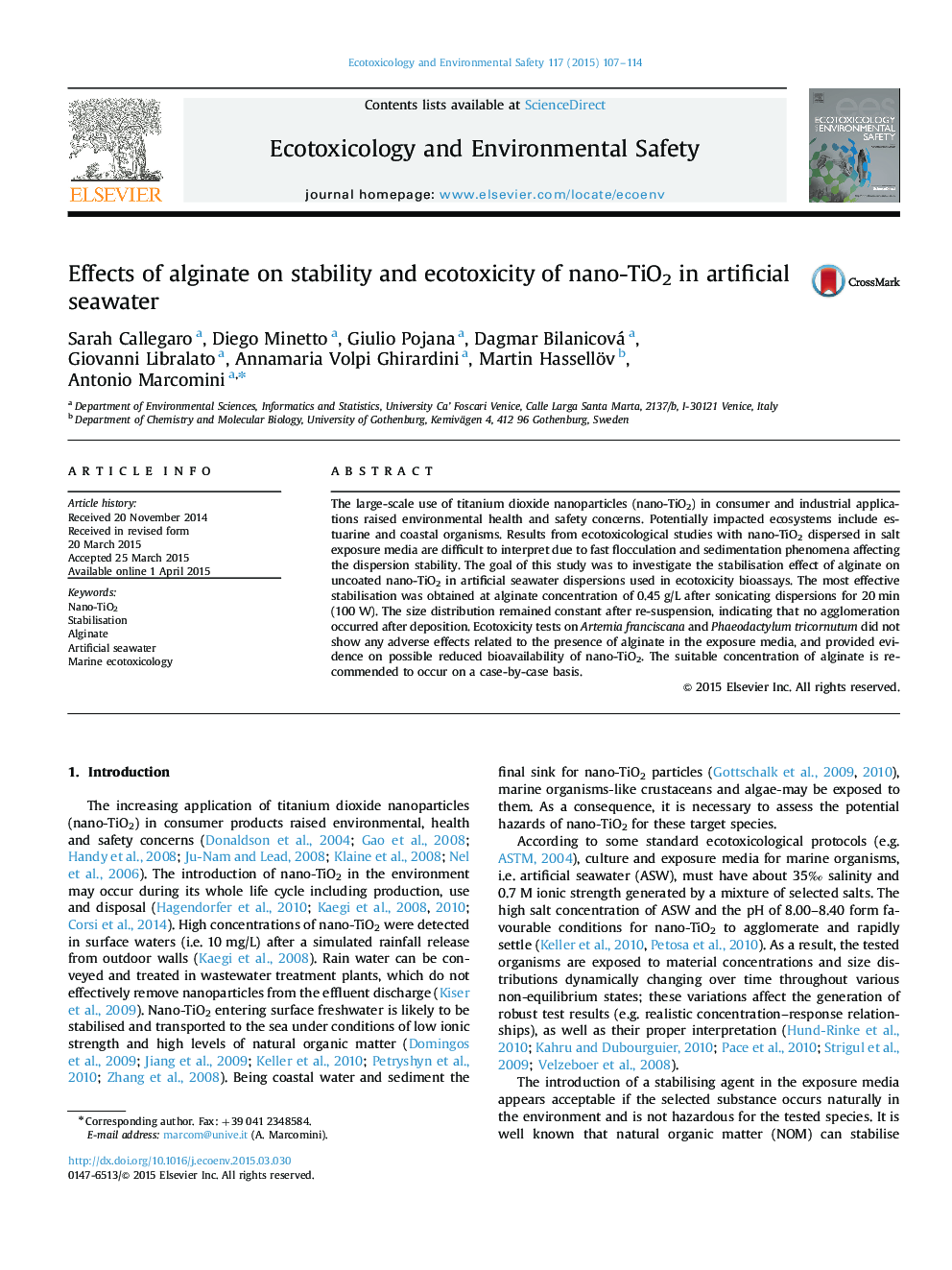| کد مقاله | کد نشریه | سال انتشار | مقاله انگلیسی | نسخه تمام متن |
|---|---|---|---|---|
| 4419593 | 1618946 | 2015 | 8 صفحه PDF | دانلود رایگان |
• Saltwater nano-TiO2 toxicity is challenging due to flocculation and sedimentation of nano-TiO2.
• Effective stabilisation was obtained at 0.45 g alginate/L (20 min sonication at 100 W).
• Alginate showed no adverse effect as nanoparticle dispersion stabiliser.
• Alginate may influence the bioavailability of nano-TiO2.
The large-scale use of titanium dioxide nanoparticles (nano-TiO2) in consumer and industrial applications raised environmental health and safety concerns. Potentially impacted ecosystems include estuarine and coastal organisms. Results from ecotoxicological studies with nano-TiO2 dispersed in salt exposure media are difficult to interpret due to fast flocculation and sedimentation phenomena affecting the dispersion stability. The goal of this study was to investigate the stabilisation effect of alginate on uncoated nano-TiO2 in artificial seawater dispersions used in ecotoxicity bioassays. The most effective stabilisation was obtained at alginate concentration of 0.45 g/L after sonicating dispersions for 20 min (100 W). The size distribution remained constant after re-suspension, indicating that no agglomeration occurred after deposition. Ecotoxicity tests on Artemia franciscana and Phaeodactylum tricornutum did not show any adverse effects related to the presence of alginate in the exposure media, and provided evidence on possible reduced bioavailability of nano-TiO2. The suitable concentration of alginate is recommended to occur on a case-by-case basis.
Journal: Ecotoxicology and Environmental Safety - Volume 117, July 2015, Pages 107–114
